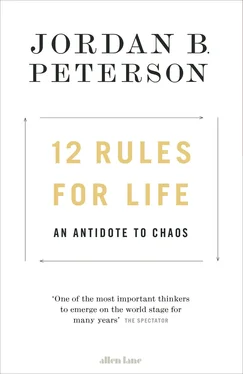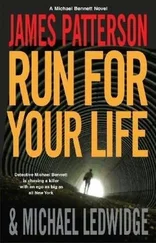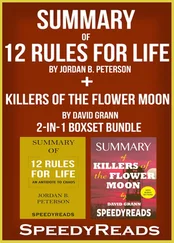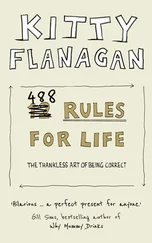Across the street on which I live is a cat named Ginger. Ginger is a Siamese, a beautiful cat, very calm and self-possessed. She is low in the Big Five personality trait of neuroticism, which is an index of anxiety, fear and emotional pain. Ginger is not at all bothered by dogs. Our dog, Sikko, is her friend. Sometimes when you call her—sometimes of her own accord—Ginger will trot across the street, tail held high, with a little kink at the end. Then she will roll on her back in front of Sikko, who wags his tail happily as a consequence. Afterward, if she feels like it, she might come visit you, for a half a minute. It’s a nice break. It’s a little extra light, on a good day, and a tiny respite, on a bad day.
If you pay careful attention, even on a bad day, you may be fortunate enough to be confronted with small opportunities of just that sort. Maybe you will see a little girl dancing on the street because she is all dressed up in a ballet costume. Maybe you will have a particularly good cup of coffee in a café that cares about their customers. Maybe you can steal ten or twenty minutes to do some little ridiculous thing that distracts you or reminds you that you can laugh at the absurdity of existence. Personally, I like to watch a Simpsons episode at 1.5 times regular speed: all the laughs; two-thirds the time.
And maybe when you are going for a walk and your head is spinning a cat will show up and if you pay attention to it then you will get a reminder for just fifteen seconds that the wonder of Being might make up for the ineradicable suffering that accompanies it.
Pet a cat when you encounter one on the street.
P.S. Soon after I wrote this chapter, Mikhaila’s surgeon told her that her artificial ankle would have to be removed, and her ankle fused. Amputation waited down that road. She had been in pain for eight years, since the replacement surgery, and her mobility remained significantly impaired, although both were much better than before. Four days later she happened upon a new physiotherapist. He was a large, powerful, attentive person. He had specialized in ankle treatment in the UK, in London. He placed his hands around her ankle and compressed it for forty seconds, while Mikhaila moved her foot back and forth. A mispositioned bone slipped back where it belonged. Her pain disappeared. She never cries in front of medical personnel, but she burst into tears. Her knee straightened up. Now she can walk long distances, and traipse around in her bare feet. The calf muscle on her damaged leg is growing back. She has much more flexion in the artificial joint. This year, she got married and had a baby girl, Elizabeth, named after my wife’s departed mother.
Things are good.
For now.
What Shall I Do With My Newfound Pen of Light?
In late 2016 I travelled to northern California to meet a friend and business associate. We spent an evening together thinking and talking. At one point he took a pen from his jacket and took a few notes. It was LED-equipped and beamed light out its tip, so that writing in the dark was made easier. “Just another gadget,” I thought. Later, however, in a more metaphorical frame of mind, I was struck quite deeply by the idea of a pen of light. There was something symbolic about it, something metaphysical. We’re all in the dark, after all, much of the time. We could all use something written with light to guide us along our way. I told him I wanted to do some writing, while we sat and conversed, and I asked him if he would give me the pen, as a gift. When he handed it over, I found myself inordinately pleased. Now I could write illuminated words in the darkness! Obviously, it was important to do such a thing properly. So I said to myself, in all seriousness, “What shall I do with my newfound pen of light?” There are two verses in the New Testament that pertain to such things. I’ve thought about them a lot:
Ask, and it shall given to you; Seek, and ye shall find; Knock, and it shall be open unto you: For everyone who asks receives; the one who seeks finds; and to the one who knocks, the door will be opened (Matthew 7:7-7:8)
At first glance, this seems like nothing but a testament to the magic of prayer, in the sense of entreating God to grant favours. But God, whatever or whoever He may be, is no simple granter of wishes. When tempted by the Devil himself, in the desert—as we saw in Rule 7 (Pursue what is meaningful [not what is expedient])—even Christ Himself was not willing to call upon his Father for a favour; furthermore, every day, the prayers of desperate people go unanswered. But maybe this is because the questions they contain are not phrased in the proper manner. Perhaps it’s not reasonable to ask God to break the rules of physics every time we fall by the wayside or make a serious error. Perhaps, in such times, you can’t put the cart before the horse and simply wish for your problem to be solved in some magical manner. Perhaps you could ask, instead, what you might have to do right now to increase your resolve, buttress your character, and find the strength to go on. Perhaps you could instead ask to see the truth.
On many occasions in our nearly thirty years of marriage my wife and I have had a disagreement—sometimes a deep disagreement. Our unity appeared to be broken, at some unknowably profound level, and we were not able to easily resolve the rupture by talking. We became trapped, instead, in emotional, angry and anxious argument. We agreed that when such circumstances arose we would separate, briefly: she to one room, me to another. This was often quite difficult, because it is hard to disengage in the heat of an argument, when anger generates the desire to defeat and win. But it seemed better than risking the consequences of a dispute that threatened to spiral out of control.
Alone, trying to calm down, we would each ask ourselves the same single question: What had we each done to contribute to the situation we were arguing about? However small, however distant … we had each made some error. Then we would reunite, and share the results of our questioning: Here’s how I was wrong ….
The problem with asking yourself such a question is that you must truly want the answer. And the problem with doing that is that you won’t like the answer . When you are arguing with someone, you want to be right, and you want the other person to be wrong. Then it’s them that has to sacrifice something and change, not you, and that’s much preferable. If it’s you that’s wrong and you that must change, then you have to reconsider yourself—your memories of the past, your manner of being in the present, and your plans for the future. Then you must resolve to improve and figure out how to do that. Then you actually have to do it. That’s exhausting. It takes repeated practice, to instantiate the new perceptions and make the new actions habitual. It’s much easier just not to realize, admit and engage. It’s much easier to turn your attention away from the truth and remain wilfully blind.
But it’s at such a point that you must decide whether you want to be right or you want to have peace. [18216] See Allen, L. (2011). Trust versus mistrust (Erikson’s infant stages). In S. Goldstein & J. A. Naglieri (Eds.). Encyclopedia of child behavior and development (pp. 1509–1510). Boston, MA: Springer US.
You must decide whether to insist upon the absolute correctness of your view, or to listen and negotiate. You don’t get peace by being right. You just get to be right, while your partner gets to be wrong—defeated and wrong. Do that ten thousand times and your marriage will be over (or you will wish it was). To choose the alternative—to seek peace—you have to decide that you want the answer, more than you want to be right. That’s the way out of the prison of your stubborn preconceptions. That’s the prerequisite for negotiation. That’s to truly abide by principle of Rule 2 (Treat yourself like someone you are responsible for helping).
Читать дальше












